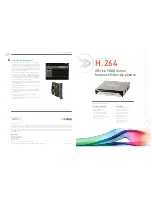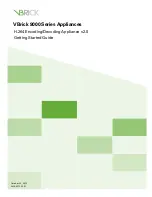
2. Serial Protocols
ROS® v3.11User Guide
49
RMC30
2.2.2. Modbus Server and Client Applications
The Modbus Server and Client applications are used to transport Modus requests and
responses across IP networks.
The Modbus Client application accepts Modbus polls from a master and determines the
IP address of the corresponding RTU. The client then encapsulates the message in TCP
respecting TCPModbus protocol, and forwards the frame to a Server Gateway or native
TCPModbus RTU. Returning responses are stripped of their TCP headers and issued to the
master.
The Modbus Server application accepts TCP encapsulated TCPModbus messages from
Client Gateways and native masters. After removing the TCP headers, the messages are
issued to the RTU. Responses are TCP encapsulated and returned to the originator.
The following figure presents a complex network of Client Gateways, Server Gateways and
native TCPModbus devices.
Figure 2.5. Modbus Client and Server
2.2.2.1. TCPModbus Performance Determinants
The following description provides some insight into the possible sources of delay and error
in an end-to-end TCPModbus exchange.
















































